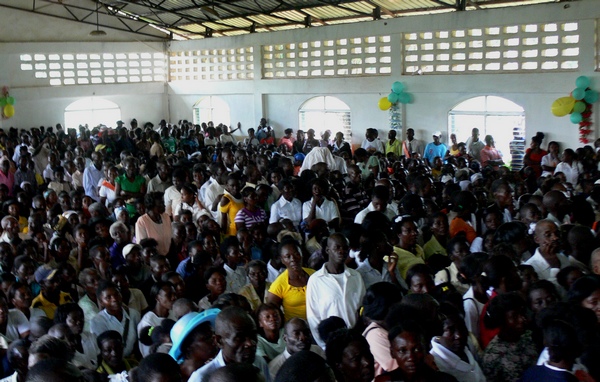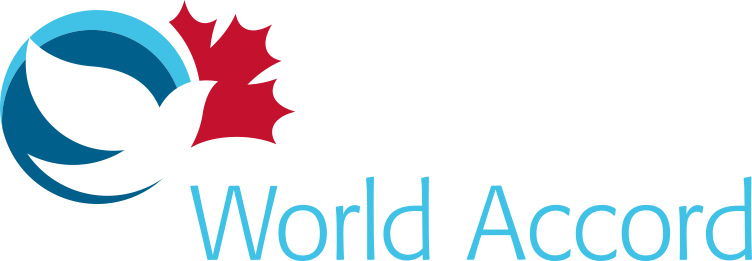Literacy opens up the world for Haiti’s poor farmers
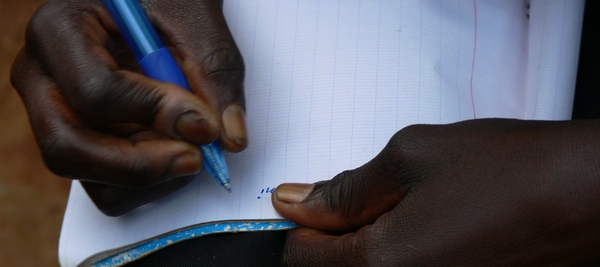
This post is the second in a series looking at a trip to Haiti by our CEO David Barth and Program Coordinator Farrah Ali-Khan. A highlight of David and Farrah’s trip to Haiti was the graduation of 1,347 graduates from a literacy program by participants of three participating cooperatives.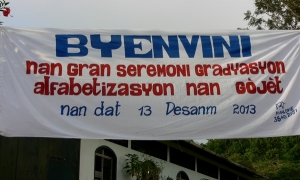 There are surprisingly strong links between literacy and a better life for these people who make their living through agriculture. One participant mentioned that they changed their slash and burn method of farming because they can now read the training materials. The celebration involved a number of skits by the cooperatives. A constant theme was that literacy meant liberation. No longer would the graduates have to “put down crosses for their names.” People now enjoyed a sense of freedom because the world of words was open to them. David and Farrah spoke with a 60 year old Yvanise Joseph who could now write. When she writes her name, it’s “like I’m no longer on the ground, I’m up in the air.” She used to be afraid of people–she even ran away from white people–but not anymore. She pledged to continue going to school until she died.
There are surprisingly strong links between literacy and a better life for these people who make their living through agriculture. One participant mentioned that they changed their slash and burn method of farming because they can now read the training materials. The celebration involved a number of skits by the cooperatives. A constant theme was that literacy meant liberation. No longer would the graduates have to “put down crosses for their names.” People now enjoyed a sense of freedom because the world of words was open to them. David and Farrah spoke with a 60 year old Yvanise Joseph who could now write. When she writes her name, it’s “like I’m no longer on the ground, I’m up in the air.” She used to be afraid of people–she even ran away from white people–but not anymore. She pledged to continue going to school until she died.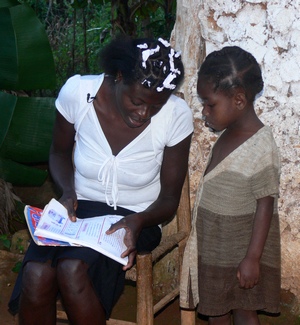 Another graduate was 25 year old Lotanie Milord who shared that she learned to read and write to help her daughter in kindergarten with her homework. She said, “It feels good that when she goes to church she can actually read the hymns and sing them.” Others mentioned how literacy gave them a better sense of self. Their improved self-esteem gives them the confidence to sell and market their crops more effectively. This graduation ceremony and the stories shared at it showed the importance of literacy to these poor farmers. Learning to read and write transformed both people and communities. The changes are so dramatic, you can see them.
Another graduate was 25 year old Lotanie Milord who shared that she learned to read and write to help her daughter in kindergarten with her homework. She said, “It feels good that when she goes to church she can actually read the hymns and sing them.” Others mentioned how literacy gave them a better sense of self. Their improved self-esteem gives them the confidence to sell and market their crops more effectively. This graduation ceremony and the stories shared at it showed the importance of literacy to these poor farmers. Learning to read and write transformed both people and communities. The changes are so dramatic, you can see them. 